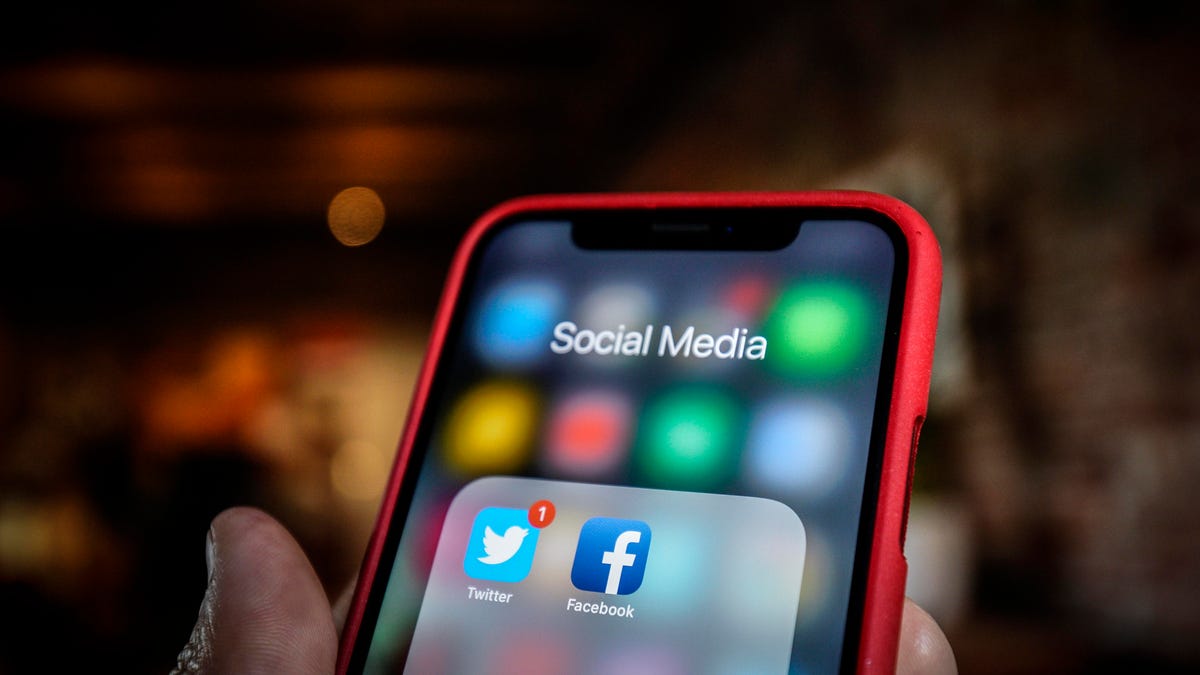Fake news is thriving thanks to social media users, study finds
Most Americans think the problem will get worse.

Twitter and Facebook apps on an iPhone.
Facebook, Twitter and other social media sites have been stepping up their efforts to combat the spread of fake news on their platforms but that hasn't stopped Americans from sharing misinformation.
It turns out US adults who prefer to get their news through social media are more likely to share fake news than those who prefer to get news via conventional methods, such as newspapers, TV or websites, according to a study released Wednesday by the Pew Research Center.
About 60% of US adults who prefer getting news through social media said they had shared false information. But the situation was only a little better with US adults who preferred conventional media, such as newspapers and TV. Of that group, 51% said they had shared fake news. Both groups were about as likely to encounter fake news often, the study found.
The findings were part of a 72-page report that show Americans see fake news as a problem that needs to be fixed. The Pew Research Center surveyed more than 6,000 US adults from Feb. 19 to March 4 for the study. As part of the survey, Americans were asked how often they got news from social media sites such as Facebook, Twitter or Snapchat.
About two-thirds of Americans said they came across altered images or video sometimes or often. The issue has prompted renewed concern since doctored videos of House Speaker Nancy Pelosi making her appear drunk spread on Facebook, Twitter and YouTube. One version of the video on Facebook appears to be gone, even though the social network has denied pulling it down.
Most Americans blamed political leaders and activists for spreading misinformation. They also thought journalists had more of a responsibility to help fix the problem. Only 9% of US adults thought tech companies carried the most responsibility to reduce the amount of misinformation out there.
Most Americans -- about 56% of US adults -- also think the problem of made-up news will get worse over the next five years, according to the survey.
"While Americans want the issue of made-up news addressed, they are also conscious of the huge challenge posed by partisan divides in our country today – challenges that are pronounced in the level of blame members of each party place on the news media," said Amy Mitchell, the center's director of journalism research, in a statement.

